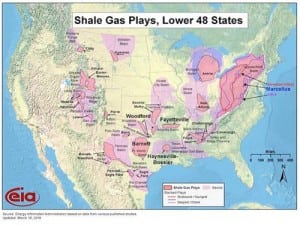Commentary
-
Commentary
Advancing America’s Nuclear Infrastructure
It is fair to say that 2011 is bringing some uncertainty into the nuclear energy industry. The tsunami and subsequent events at Fukushima present Japan and our industry with new challenges but also serve as a catalyst for continuous improvement. In the U.S., we are learning from these events and improving our operations, designs, and emergency response approaches to make our plants safer, more efficient, and more environmentally friendly.
-
Commentary
Demand Response Demands Response
What the summer heat wave, and one utility’s less-than-stellar response, teaches us about communicating with customers.
-
Commentary
The Development of U.S. Shale Gas Resources: Regulation and Litigation
The rise of shale gas in U.S. energy markets has profound economic implications. It has the potential to transform the existing market and bring opportunities for new markets. But shale gas also raises regulatory challenges and the likelihood of litigation. Here’s an introduction to the issue and a primer on the regulatory and legal ramifications of the shale revolution.
-
Commentary
Climate Pragmatism: Introduction
Last summer, an international group of scientists and policy analysts under the auspices of the London School of Economics launched an ambitious effort to reshape the debate over global warming policy in a document known as The Hartwell Paper. This July, a similar group followed up with a new report, titled "Climate Pragmatism: Innovation, Resilience and No Regrets," which puts the earlier work into a North American context.
-
Commentary
Get Creative, Skip the Path of Least Resistance
In training for a sport, the common wisdom is "no pain, no gain." The same is true when it comes to fostering creativity in the workplace. Force yourself and your organization out of the easy path, break out of the rut, and gain as a result.
-
Commentary
Coal: A Key Part of Our Clean Energy Future
With the U.S. economy still struggling, few things are as important as having an abundant, reliable supply of energy to help drive our recovery. Many American families are hurting and our businesses are being challenged to create new jobs. That’s why federal, state, and local public policies must balance the need for broader economic prosperity, […]
-
Commentary
Water Issues, Carbon, and Price of Power Top Utility Concerns
In a clear sign of growing industry unease about the availability of water for power plant operations, utility officials recently surveyed by Black & Veatch on a host of policy and business issues ranked water supply as their second-highest environmental concern and identified water management as the business issue that could have the greatest impact on the utility industry in the near future.
-
Commentary
Carbon Markets Take Flight (in Europe)
The European Union has adopted a greenhouse gas cap-and-trade system as part of its Emissions Trading Scheme (ETS). Beginning January 2012, aircraft flight engines will be added to the emissions sources regulated by the ETS. A Solutions Fellow at the Pew Center on Global Climate Change believes these regulations are an important step in regulating carbon emissions. You be the judge.
-
Commentary
Which Comes First?
Proponents of carbon dioxide emission reductions from power plants are lamenting the decision by American Electric Power to cancel the carbon capture and sequestration plant at its Mountaineer facility in West Virginia. It’s not politics, it’s just business.
-
Commentary
Geothermal Projects Race to Meet Incentives Deadlines
At the close of 2009, the U.S. geothermal industry had seen seven new geothermal power plants come online in the previous 12 months. In 2010, only one new power plant was completed.

